
Public Speaking 101: Use Notes
D
o you believe that a speaker working without notes is therefore ‘better’ than one who does use notes? I ask because a lot of people ask me the same question. If you’re giving a presentation you have to decide for yourself, should you:
And that’s all it takes! Follow one or all of these and you’ll be giving it less than your best, and putting yourself through hell, and abusing the audience as well. Or, you can do the opposite and give yourself a fighting chance. More on that, anon.
- Try to memorize your notes / script.
- Read your notes.
- familiarize yourself, using notes.
Memorizing takes a lot of bandwidth, trust me. Unless you’re naturally good at it, or have very little to say, I advise not even worrying about it. You should do what supports you best when you’re on, and not concern yourself with how ‘notes/no notes’ looks to an audience. Are they engaged, is what you want to concern yourself with.
Reading your remarks is OK, but only if you’re really good at it. Most people don’t have the training to bring words on the page to life, which is an art. Professional narrators know how to employ the technique, so you can study up on them. One thing you should never read are PowerPoint slides.

This is my advice for the average speaker who wants to do the best possible job. The more you review your content and practice it, the better you’ll be able to fully own it during your actual delivery. Use notes that help keep you focused on your message, but also allow you to tune in to your audience. Make sure the font is larger than usual. Use color or images in the margins, for emotional cues.
People with little experience in public speaking in general tend to underestimate what goes into “extemporaneous” talking- unscripted and improvised. It might look easy but that’s the beauty of excellent communication- it all seems so simple.
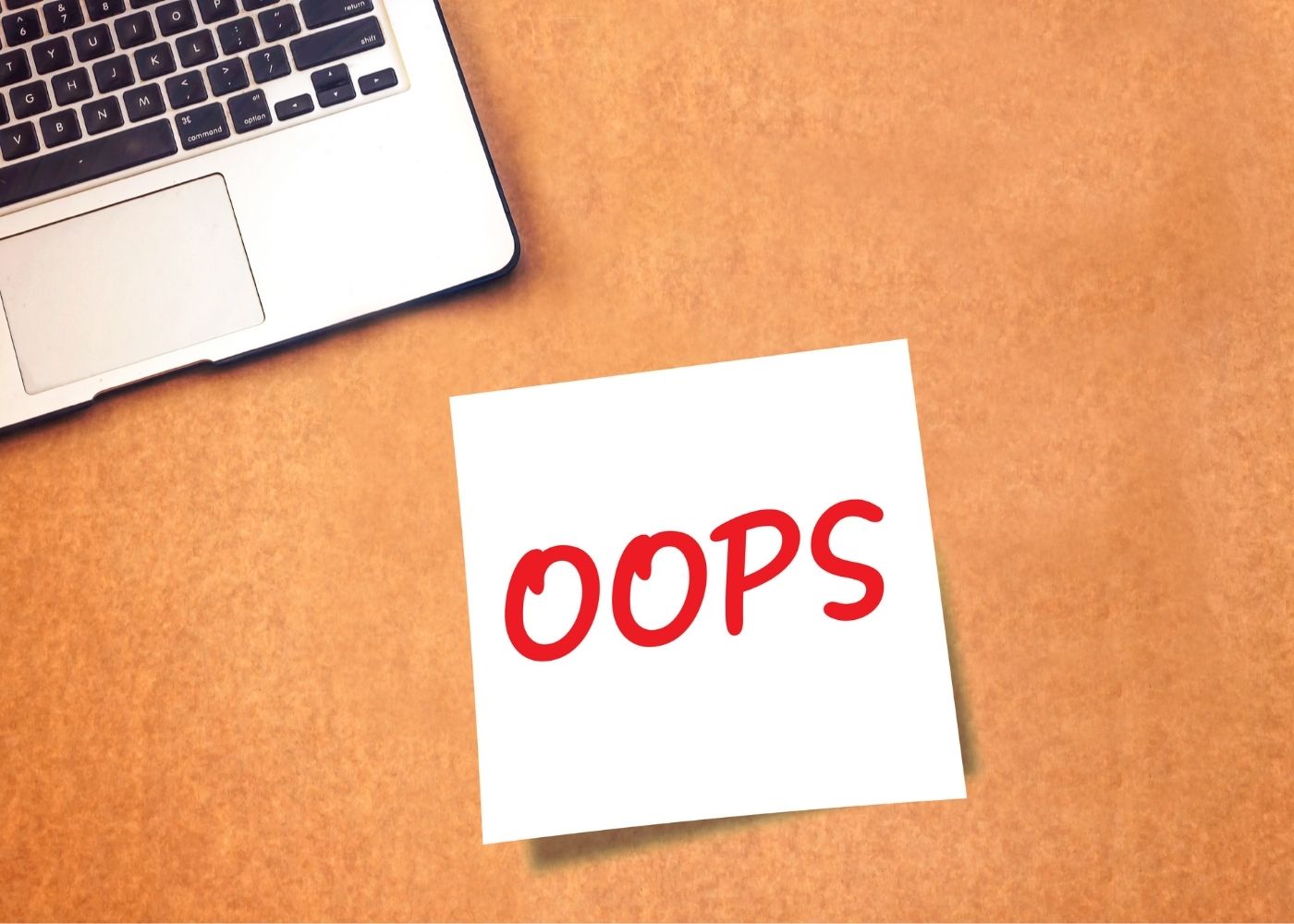
How To Screw Up Your Presentation
H
ow to screw up your presentation:
- Procrastinate. Wait until the last possible minute to think about your message, your intention and your knowledge.
- Once you’re good and nervous because you’ve waited so long, sit down in front of the computer to write your speech.
- Start typing whatever comes to mind. Spill it all out onto the page.
- Print it out in a size 10 or 12 font.
- Don’t rehearse. Don’t get to know it, or to own it. Just read through it to yourself.
- Drink lots of coffee on the day you present.
- Grab whatever clothes you want and same with shoes.
- Manage your stage fright by imagining your audience in their underwear.
- Start by telling everyone how nervous you are.
- Speak as quickly as possible, to get it over with.
And that’s all it takes! Follow one or all of these and you’ll be giving it less than your best, and putting yourself through hell, and abusing the audience as well. Or, you can do the opposite and give yourself a fighting chance. More on that, anon.

Webinar Success Tips
W
hen I gave a webinar a few weeks ago, the subject of which was “Meetings You Won’t Want to Miss” I was shocked to learn that after speaking for 45 minutes on the subject… I still had 387 attendees and they had questions. About meetings??
Well…yes. And the point is that just about any subject can be made engaging if you make the right choices. In my case, I was asked to speak on the topic of meetings and I said I would but… I had misgivings. Meetings are boring, for the most part. People don’t like them. So I decided to state that at the very top-to confess my own negative impressions and take it from there. Choosing to open with the “elephant in the room” is stronger than ignoring it. If your topic is similarly bogged down with a negative reputation, it’s good to address it up front.
The other strong choice that I made was to include visual slides (cartoons, photographs etc) that were humorous. This works well for two reasons:
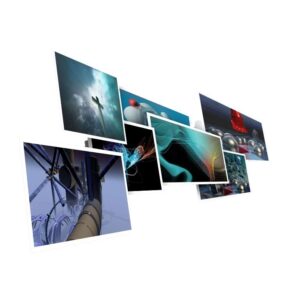
- images convey information much more quickly than words, so you don’t have to belabor the point
- the attendee is compelled to look at the screen, rather than just listening
The people running the event were able to see when attendees were actively engaged with their screens (I don’t know how as I wasn’t privy to that info) So in addition to having images to look at, I also had some simple bullet points on slides, which I did not read to them. It is the kiss of death, and most presenters make this common mistake. Listening to someone else read what is already written is dull, and slows your pace way down. Instead, allow a few seconds of silence when the bullet points come up. That way your audience can read it in peace, and your comments can pick it up from there.
Webinars are one of the most challenging forms of presenting to pull off well. They require a lot of preparation, and an understanding of language, both written and spoken. But they are well worth it for their ability to enable you to connect with larger audiences and to take questions
One of the biggest points I got questions on was my suggestion to make all meetings “Device Free” and having a collection basket placed by the door. What a difference it makes, and can kill the desire for a meeting in the first place! I recently did this at a dinner party, and I don’t know who took it worse at first- the teenagers or the over 60 year olds. It turned into a great success, and no one got hurt in the process.
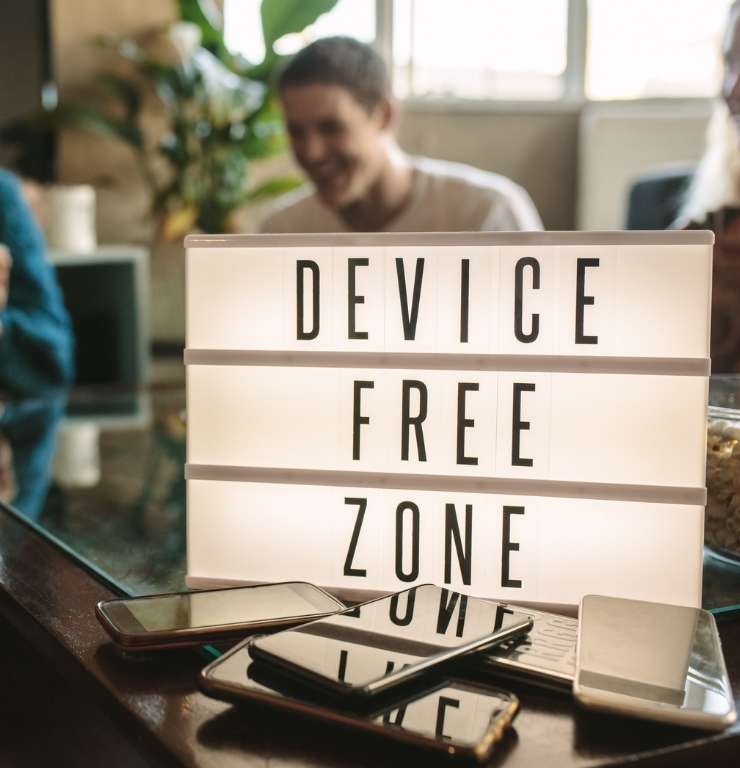

My Grandmother Was Right-“You’ll catch more flies with honey than with vinegar!”
oh, the number of favors I’ve been given, gifts I’ve received, and compliments I’ve heard for one simple reason: I’m polite on the phone, online, and in person. Why am I like this? Good upbringing certainly helps. I was taught to be courteous even if my opinion differs from someone else; to praise people when they’re doing their job well, and to always use “please” and “thank you.”
My dear friend is just the opposite. Whenever we’re together, she approaches any public interaction as one more potential problem. She brings that energy to whatever the situation may be (ordering food, asking for information, returning something) and more often than not, her tone is picked up on right away, and she puts people on the defensive. I’ve tried to tell her that she’s sending this message, but she can’t seem to help herself because I don’t think she can see and identify it.


Meanwhile, people have sent me:
– a new paper shredder (after my old one conked out)
– 3 different $25 gift certificates, 2 to Whole Foods, 1 to Target, just for telling the store manager how well they were running things (they always expect a complaint, which is sad)
– a total refund from a popular shopping site that rarely issues them (for $220.)
The salient point is that I never did anything in order to ‘be gifted’ I was just being myself, which includes being polite. i.e. “Why has my shredder stopped working, do you think? I’ve done all of the trouble shooting, but nothing’s helping.” Or: “I know your policy on refunds, but may I tell you XYZ., and “May I see the manager? I’d like to compliment them on the excellent service here.”
Far too often, people are quick to complain. It didn’t used to be this way, but it is now. Try the opposite approach when you next get a chance. Compliment, acknowledge, and praise. Everyone needs encouragement, now more than ever.

Five Confidence Boosts
Last month I presented a workshop to Millennials, and got the chance to ask them what qualities they most wanted for themselves, when speaking in public. They all said “I want to feel confident.” Many of them labeled themselves as “introverts” and I finally had to ask why so many of them were doing so. That’s when they told me about the book Quiet, and where this trend comes from. So I made a note of it, and just finished the book. Here’s what I think:
My heart goes out to the many souls who find themselves expected to be “on” when they’d rather blend in. With ubiquitous recording devices (we were right-Big Brother is watching!) it can be unnerving to try to intuit how to simply “be.” To feel free of self-consciousness is a gift everyone deserves to have. It makes life much easier, not to mention much more pleasant.
Confidence can be created, nurtured and grown. I know this from personal experience, as well as professional observation. There are many tips for this, and here are my top five for today:

1) Speak well of yourself, to yourself. “Self-talk” is incredibly influential on our mood and energies. Negative inner thoughts will play out, as will positive ones. The key is to tune in to them and pay attention. Sometimes it can be way too easy to jump on a train wreck of mental images of what we don’t want to happen. The law of attraction doesn’t care what images and ideas we have…so if we can’t protect ourselves from toxic thoughts, no one else can. Be kind and supportive to yourself, first.
2) Give yourself enough time to arrive on time. Feeling rushed is a confidence killer; it throws you off your game and puts you in a reactive mode, instead of proactive. The control you’ll experience each time you arrive somewhere on time (or early) will help stabilize your inner energy and feed your sense of self.


3) Stand up straight, pull your shoulders back. Too much screen time has given many of us a hunch in our posture. When we stand up and unfurl ourselves, we open up the rib cage and give our lungs more room to breathe. Deep, diaphragmatic breaths are an effective way to ground the whole body and feel calm.
4) Unplug yourself before going to events. It’s better to begin to gather a sense of yourself, physically and mentally, well before you arrive at the door of your next event. Too often, we use the final minutes just before a meeting or a networking event to cram in one more email or text. Real time requires your attention and presence, where the online tasks can often wait. Give yourself the best support you can, so you’ll be able to make the most of your face time with people.


5) Eat whole foods that keep your blood-sugar even. It might not seem related, but how well-nourished we are or are not plays a big part in how we feel and how we come across. If we haven’t eaten well, we might get light-headed, lethargic and dull-feeling. That energy will send a certain message, that can only get in the way of feeling steady and stable. And always drink plenty of water to stay hydrated.
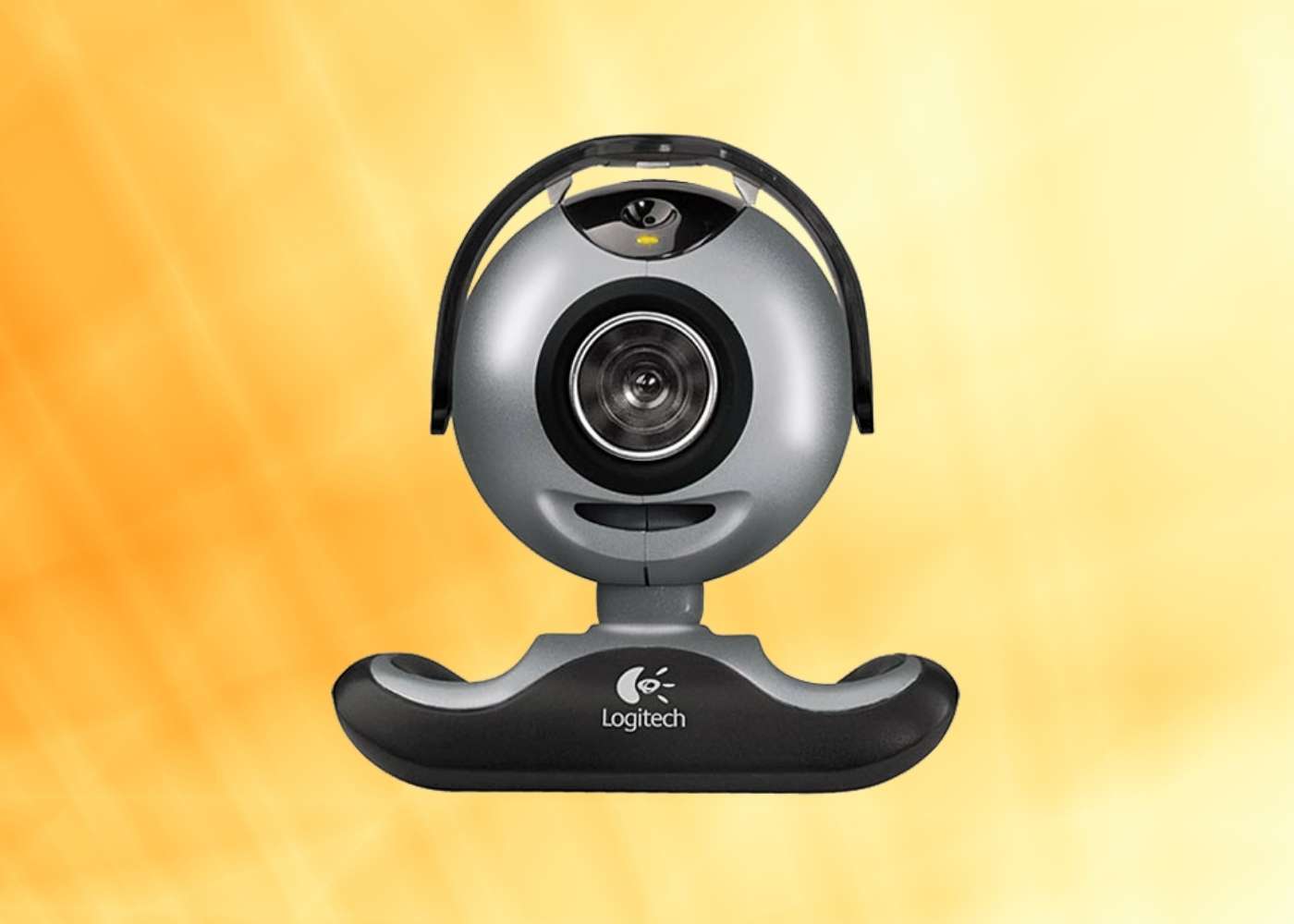
One Common Mistake to Avoid When On Camera
A quick word on background when shooting a video: open bookshelves are a popular place for people to position themselves in front of, but I advise my clients against it.

Books & photos have a very “talky” energy to them, so while you might be focusing on your message, your audience can’t help but notice what’s going on behind you. That means your background is pulling focus away from you and onto itself.
A better choice is to place yourself in front of a simple setting that is uncomplicated and almost zen-like. A well-placed prop can go far…a healthy plant or beautiful object…candles, floral decoration, or a backdrop that you customize for your shoots. The goal is to make it easy for your audience to watch and listen to your every word, and not to try to make out the titles on your bookshelf.


For the Ladies: Stop Apologizing, Please
The other day, I decided to count the number of times I heard women apologizing in public, because I was hearing a pattern in the way women, in general, communicate. (disclaimer: here in NYC, though I suspect it’s ubiquitous)
Clearly, I already suspected that the count would be high, but I was stunned as the number rose so quickly.

The short bus ride into the city racked up eight “I’m sorry’s” in under five minutes.
“I’m sorry, is this the last stop?” “Sorry to bother you, can I sit here?” and then just plain “sorry” for handing the driver a $20. (By the way, it’s their job to make change.) The best was when the bus lurched, and I accidentally stepped on the woman behind me, and she apologized to me.
My next stop was a meeting of an all-female entrepreneurs group. Oh, the apologies were whistling around the conference room…prefacing questions with “I’m sorry” or coming in late and apologizing, getting up to leave and apologizing.
This has got to stop. Women do it far more often than men, and I just can’t see the point of it. It’s a reflex, said without literally meaning in, but conveying apology and regret just the same. For what? What are we really saying here? It might be construed as apologizing for merely existing, and is that really the message we want to send out to the world?
I think not. Save the words for when you truly mean them, and not as a disclaimer for opening your mouth in public. Our words have consequences, with the power to shape the future, so stop apologizing and start thinking about what you really want to say. It will change who you are, and strengthen your self-confidence.

Drinking and Speaking in Public.
Last night at a networking dinner, I was gratified to see that the keynote speaker made a point of waiting until after her speech to have a glass of wine, even as the rest of the room was cheerfully imbibing. As a physician, she clearly knew how alcohol affects motor control, and wisely opted to wait.
Still, I get asked the question fairly often- “Is it OK if I have a drink (or tranquilizer) to help me with stage fright?” My answer is two-fold:
- There are better, more effective ways of managing your anxiety. The first is to prepare thoroughly, including rehearsing and timing yourself. That alone will give you a sense of accomplishment and ownership.
- Herbal teas, Valerian root, Bach Rescue Remedies…I’ve tried them and found them to have a nice soothing quality (yes, I get stage nerves too.)
- But sometimes, some backup is useful. One client had an r/x for a beta-blocker, which is a drug that works to keep the heart rate steady. He asked if he could take it, and I told him that I’d rather him have it on him, and not need it, than to not have it at all. He ended up taking it one time, and then never needed it again.

Drinking is just not a good way to prepare for speaking in public. Your speech, your reflexes and your mental acuity all get involved. Is this how you want your audience to see you?
Let them see you shining your light, in all its undiminished strength and glory…then you can have a victory glass of wine!

Stage Fright.
“You manage your emotions or your emotions will manage you.” Basketball coach John Wooden
“You manage your stage fright or your stage fright will manage you.” Public Speaking coach Katie Karlovitz
There’s nothing worse than the terror of being in front of an audience and feeling helpless and out of control. Stress tests have clinically shown that the fear of going on stage equals the fear of going into battle, which explains the “fight or flight” response that so often kicks in before giving a speech. It’s time to confront this head on, because too many good people are being silent when they should be speaking up.

The first thing to understand is that this fear is a type of energy…nothing more or less. Einstein said “All is energy” and he was right. Unfortunately, many people are obsessing over the very thing they wish to avoid, which is a holy terror at being under the spotlight. But the law of attraction dictates that public speaking hell is exactly where they’re heading because that’s where their thoughts lead them.
So the challenge lies in handling the strong physical, mental, and emotional components that are acting on us; by harnessing the energy of fear we can re-direct it and point it squarely at what we want to happen, in this case, giving a confident delivery. Here are the antidotes to the toxic forces in play:
- Physical- the first, best defense is to get your breath under control. Once you do that, the rest of the body has no choice but to follow along. When we’re scared, our breathing becomes shallow, short and gulping for air. By slowing it down, we are able to manage it. Drop down into deep breaths from the diaphragm, inhaling on a slow count of five, holding that breath for five, and then releasing on a slow, controlled count of five. Repeat until you feel grounded and calm.
- Limit your caffeine on days that you’ll be presenting-you don’t need it on top of the adrenaline you’ll be releasing into your bloodstream. Same with sugar…you don’t want anything to be spiking your levels.
- Your mental game needs to be strong-this isn’t the time to allow stray thoughts in, because they can too easily be negative or judgmental and this will only get in your way. Stay firmly focused on your message, whatever it is that you believe is imperative to tell your audience. You can’t tell them everything you know, so make every point matter, stay in the moment and don’t get ahead of yourself.
- Emotional support is another key to handling yourself. Create a mantra that perfectly captures the results you’re aiming for. “I am cool, collected and confident.” “My message and my integrity are clear.” Try assuming an avatar that embodies the qualities you admire…it’s role play and can be effective and fun, too.
Coach Wooden got such spectacular results from his players because he knew how to focus their energies. He never emphasized game results, rather just playing to the best of each person’s ability. He made sure they were well-prepared, so they wouldn’t have to over-think things once on the basketball court.
This is the strategy I use when coaching people, and it works. Place your energy on your preparation, and the nerves will be put in their proper perspective and almost take care of themselves.

Clutter in the Convo.
Spring lends itself perfectly to sloughing off layers of life that we no longer need. Blankets, hats, excess pounds, and unused “stuff” —it’s safe to shed what you won’t be needing.
This includes your style of speaking!
How you come across in front of others makes all the difference in where you might want to go with your career. If you want to go far and wide, you’ll need to be ready to speak up spontaneously. Shakespeare was right- “all the world’s a stage.” Let’s make sure we’re ready to go on:
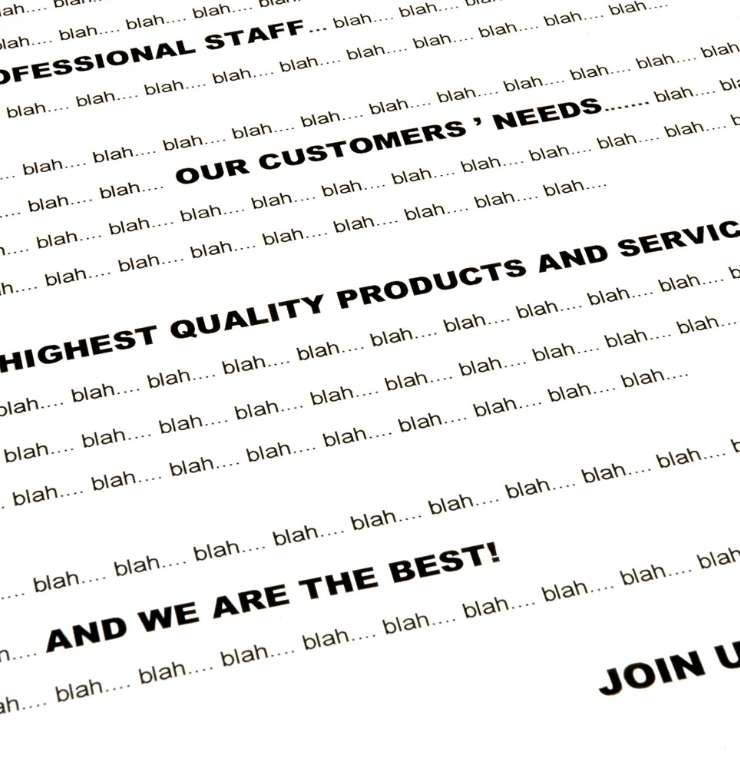
1) Are you padding your sentences with extra words and industry phrases when you talk to colleagues?
On a recent bus ride through the Lincoln Tunnel, I was reluctantly privy to one side of a typical work conversation. My young woman was liberally using industry-speak on her phone call. Those are the filler words, buzz-words, phrases, and things that everyone else says but no one gives much thought to.
I’d say it took up about 2/3 of her sentences, leaving her caller (and myself) with the remaining 1/3 to try to glean her meaning. Because she was asking a lot of questions, this back and forth went on for way too long. If she had just cut out the flabby words and phrases she was larding her sentences with, she could have finished her call in 1/3 the time and I could get back to my book!
This is an easy but deadly trap to fall into, because all of those industry words can add up. If you’re not getting mileage out your speaking, but are saying the same words that everyone else does, I encourage you to find a different approach. Words without significant meaning to the speaker are verbal clutter. They will eat into your listeners attention spans, without advancing your ideas.
2) Make sure you can be heard. Audio crispness- in phones, cameras, etc. has been in steady decline for years, and clear sound is never a given.
